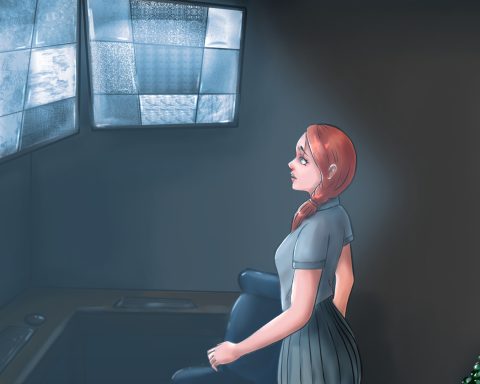Recent events have made it clear that within the games press there is the need for websites to publish a clear and transparent ethics policy. With that being in mind, what you’ll find below is ours. Moving forwards this will also be available to be read under our scoring and comments policies.
As an Australian website we use the Australian Media Entertainment & Arts Alliance’s Journalists’ Code of Ethics as our basis for all of our reports and feature articles. You can read those in full over at the Alliance’s website but it’s all standard stuff and in line with the journalism ethics practices across most of the western world. We’re bound by the idea that we’ll report and interpret honestly, and strive for accuracy, fairness and the disclosure of all essential facts.
We also, however, write a lot of editorial and game criticism at DDNet, and we understand that criticism and editorial are different forms of journalism to reporting. These forms of journalism, by their very nature, are works of subjective analysis. We believe that there is a fundamental level of confusion among many consumers within the games industry that has led to the common belief that criticism and editorial writing should be approached the same way as news reporting. This is inaccurate. You can read our explanation for why game reviews need to be subjective here, and in turn this requires us to make some clarifications to the Australian Media Entertainment & Arts Alliance’s ethics guidelines with regards to how they apply to the often highly subjective nature of games journalism:
Do not allow personal interest, or any belief, commitment, payment, gift or benefit, to undermine your accuracy, fairness or independence.
This does not mean that a journalist may not have an opinion or argue for it in his or her writing. Provided the opinion is substantiated and defensible, a writer has met his or her commitments in terms of providing an accurate and fair representation of what he or she is writing about.
With regards to personal interest or belief, commitment, payment, gift or benefit, at DDNet we have a disclaimer policy whereby any journalist that accepts a gift beyond the value of $50 Australian needs to disclaim such a gift to the Editor-in-Chief, and any such association needs to be highlighted in any article or review written about the game or developer. We will also disclaim any event that we attend in which our transport costs were paid for by the event organisers as a matter of course.
We do not however qualify a copy of a game given expressly for the purpose of a review as a gift. These codes are the equivalent of a tool of the trade, and essential to be able to produce a review at all. Furthermore, we believe that any argument that being provided with a game code compromises a journalist’s integrity is not based on any evidence.
Disclose conflicts of interest that affect, or could be seen to affect, the accuracy, fairness or independence of your journalism. Do not improperly use a journalistic position for personal gain.
It is mandatory that DDNet journalists disclose their relationship to a game developer, publisher, or other games industry professional when writing an article about them, if that games industry professional is a direct family member or long term romantic partner (of a period of six months or longer), or spouse (current or prior). There is a clear conflict of interest in such an event, and this needs to be disclosed for the benefit of our readers.
Additionally, if the journalist is involved in some kind of business venture with the company being written about, then he or she will withdraw themselves from writing an article about that venture. However, any other relationship that a journalist might have with an individual does not need to be disclosed. Journalists are like every other person on the planet and are able to be critical of friends and the work of a friend, and journalists in any field, not just the games industry, need to make acquaintances in order to be able to do their jobs properly. We see no value in exposing a journalist’s personal life each and every time they write an article that involves another person.
Do not allow advertising or other commercial considerations to undermine accuracy, fairness or independence.
No journalist, aside from the Editor-in-Chief, is made aware of any commercial relationships that DDNet has with advertisers, or the terms of these relationships. Ethical media organisations operate on a “separation of church and state” principle whereby the writers are not brought in on advertising matters, and vice versa, and we also work on this basis.
Do your utmost to achieve fair correction of errors.
Should we print an error, then we welcome someone from our community or the industry to contact us about it. So long as the error is valid (and not just a difference of opinion), we will update the story and make a note in it to clarify the mistake.
Should we make a grievous error for any reason we will also publish a note of apology on the website.
Beyond these clarifications, we adhere to the Australian Media Entertainment & Arts Alliance’s ethics guidelines as written.
Now for the other side of the coin. Digitally Downloaded’s community is one of the finest in the games industry. I genuinely believe this to be true. All of our regular visitors are happy to engage in productive debate, respect the rights of one another, and generally play nice. However, for the sake of inking it down somewhere which I can point to in the future (and every so often there is someone that will make some posts that I will need to delete, and then they get angry and abusive and I need to ban them): these ethical requirements apply to anyone who comments on DDNet as well. The basic reality is that if you post works in a comments section of a website, then you are publishing on it. And that means you, by rights, should be beholden to the same ethical framework as a journalist.
So what that really means is that we’ve got a zero tolerance policy towards anything libellous, harassing or hateful. Spam, too, can’t be tolerated – if you’re posting a link, for instance, and you’ve got a personal interest in it or stand to benefit from people clicking on it, then you’re expected to disclose that. We also can’t accept people impersonating other people or game developers signing up using false aliases to talk up their games as “anonymous commentators.”
Not that this happens often – as I said, I’m proud that we’ve got the best community out there in the games press. But it did need to be addressed because ethics is a two way street – it’s perfectly correct for you to expect the highest standard of ethics from us. It’s only fair that you in turn help to contribute to DDNet remaining an ethical source of information about the games industry.
– Matt S.
Editor-in-Chief
Find me on Twitter: @digitallydownld







